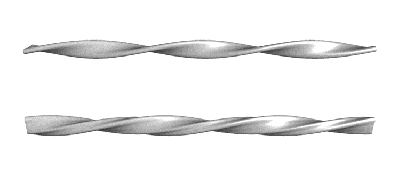English version 16 June, 2020 on EurekAlert!
The collaborative research team of Japan using the International Space Station (ISS) successfully characterized Alzheimer’s disease-related amyloid fibril formation under microgravity conditions. Their findings demonstrated that amyloid fibril formation on the ISS is significantly slower than that on the Earth. Moreover, microgravity promoted the formation of distinct morphologies of amyloid fibrils. The project highlights the utility of the ISS as an ideal experimental environment for investigating amyloid formation mechanisms without uncontrollable perturbations caused by gravity.
---------------------------------------
Amyloids, abnormal fibrillar aggregates of proteins, are associated with various disorders such as Alzheimer’s disease. Therefore, an in-depth understanding of the mechanisms of amyloid formation is critical for developing clinical strategies and drugs against these diseases. However, accumulating evidence suggests that amyloid formation processes and the consequent morphology of fibrils can be affected by various environmental factors. This is an obstacle for the integrative understanding of the mechanisms underlying amyloid formations. As gravity causes convectional perturbations in the microenvironments surrounding amyloid fibrils in solution, it may unavoidably affect the processes of molecular assembling. To test this possibility, the collaborative research team of Japan, involving Exploratory Research Center on Life and Living Systems (ExCELLS), Institute for Molecular Science (IMS), and National Institute for Physiological Sciences (NIPS) of National Institutes of Natural Sciences, Nagoya City University (NCU), and Japan Aerospace Exploration Agency (JAXA), characterized amyloid formation under microgravity conditions using the International Space Station (ISS). They compared the fibril formation of Alzheimer’s disease-related amyloid β (Aβ) proteins on the ISS with that on the Earth and found that the process of Aβ fibrillization significantly slowed down in the microgravity environment. Furthermore, distinct morphologies of Aβ fibrils were formed on the ISS. Therefore, the project highlights the utility of the ISS as an ideal experimental environment for investigating the mechanisms of amyloid formation without uncontrollable perturbations caused by gravity, thereby providing fundamental insights into the pathological amyloid formation.

Outline of the “Amyloid” project.
Decal of the project and timeline of the space experiment performed on the ISS. (©JAXA/NINS)

3D images of Aβ fibrils grown on the ISS.
Distinct morphologies of Aβ fibrils formed under microgravity conditions. (©JAXA/NINS)
Information of the Paper
Journal: NPJ Microgravity
Title:Characterization of amyloid β fibril formation under microgravity conditions
Authors:Maho Yagi-Utsumi, Saeko Yanaka, Chihong Song, Tadashi Satoh, Chiaki Yamazaki, Haruo Kasahara, Toru Shimazu, Kazuyoshi Murata, and Koichi Kato
DOI: 10.1038/s41526-020-0107-y
URL:https://www.nature.com/articles/s41526-020-0107-y
Contact Person
Koichi Kato
ExCELLS / IMS
TEL: +81-564-59-5225
E-mail: kkato_at_excells.orion.ac.jp (Please replace the "_at_" with @)
1120
2830,3234


